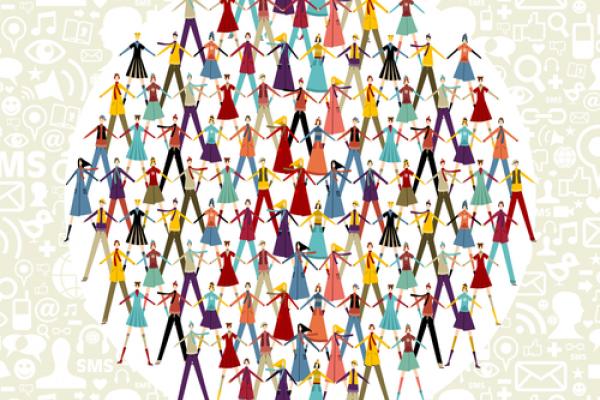A heavy and cruel hand has been laid upon us. As a people, we feel ourselves to be not only deeply injured, but grossly misunderstood. Our white countrymen do not know us. They are strangers to our character, ignorant of our capacity, oblivious to our history and progress, and are misinformed as to the principles and ideas that control and guide us, as a people. The great mass of American citizens estimates us as being a characterless and purposeless people; and hence we hold up our heads, if at all, against the withering influences of a nation’s scorn and contempt.
– Frederick Douglas, in a statement on behalf of delegates to the National Colored Convention held in Rochester, New York, in July 1853
When Frederick Douglas assembled with other representatives at the National Colored Convention of 1853, they collectively condemned the nationwide epidemic of racial discrimination. As the gathering intended to discuss the circumstances and possibilities of “coloreds” (as they were called then), they recognized the various ways that “scorn and contempt” were heaped upon them — for no justifiable reason — by the white-skinned racial majority.
In remembrance of Douglas’ critique surrounding his 19th century “white countrymen,” and in recognition of our annual celebration of Black History Month, we in the U.S. continue to mourn the deep divisions that occur due to racial misunderstanding. In other words, as we take an inventory of race relations roughly 195 years after Frederick Douglas was born, we recognize that racial ignorance among far too many of our citizens continues to result in a disturbing level of collective indifference and social inequality.
According to the U.S. Census Bureau, our nation displays deep forms of inequality that are directly related to skin color. With all other demographic factors being equal, those with white skin tend to enjoy higher levels of income, better forms of education, more advanced access to healthcare, less interaction with the criminal justice system, and many other areas of social opportunity when compared to those whose skin is either black or brown. While there are many reasons that one can cite for the ongoing levels of inequality, we can begin with the sociological fact that many racial groups continue to reside in physical isolation. In other words, while apartheid is typically used to describe pre-democracy South Africa, one recognizes that such a term (which means, “separateness”) can also illustrate contemporary life in many areas of the U.S., for racial integration within our various urban and rural communities is — for the most part — alarmingly rare.
In response to the ongoing realities of racial separateness in the U.S., our response is to affirm that we are created to be connected as companions in community.
A theological foundation of Christian faith is the belief that all people are created by God, the sociological implication is that every member of humankind shares a sacred identity, and the result is a spiritual connection that is expressed through companionship in community (Genesis 2:18). And so, whereas isolation leads to ignorance, indifference, and injustice, those who embrace being created to be connected as companions in community move past destructive generalizations and dehumanizing actions, and instead accompany others in solidarity and mutuality for the pursuit of a common good. Altogether, those who affirm being created to be connected as companions in community are more likely to understand than ignore, serve rather than sever, and advocate instead of overlook.
While racial inequality has no simple solution, one can argue that our first steps are quite straightforward. In order for equality to become our reality, we must be committed to reconciliation, transformation, and empowerment, and such movements cannot take place unless people move from personal isolation toward public companionship. In other words, people who have children in the same schools, appointments with the same doctors, walks in the same parks, carts in the same shopping aisles, jobs in the same office buildings, homes in the same streets, and seats next to each other in the same churches are more likely to put aside the labels of “us” and “them” and instead see others for who they truly are. And so, in order to eliminate the various racial inequalities that continue to exist, the starting point is to move past isolation and embrace multicultural companionship for the sake of restoring our communities and promoting life in its fullness.
Instead of existing as social strangers and misjudging others as a result, the time is upon us to move past so-called racial tolerance, go beyond our traditional comfort zones, and actively seek out cross-cultural interactions and relationships. As we learn to accompany one another across racial lines through the twists and turns of daily life, we experience God as alive and well in the midst of our diversity, and the result is various opportunities to join together in ways that replaces exclusion and isolation with embrace and companionship for the promotion of equal opportunity. In order to take these important steps forward as an alternative to American Apartheid, we are called to transform the present, empower each other for the future, and through a commitment to companionship, boldly restore the human community into that which God has created us to be.
Brian E. Konkol is an ordained pastor of the Evangelical Lutheran Church in America (ELCA), serves as Co-Pastor of Lake Edge Lutheran Church (Madison, Wis.), and is a PhD candidate in Theology & Development with the University of KwaZulu-Natal (South Africa).
Photo: Cienpies Design / Shutterstock.com
Got something to say about what you're reading? We value your feedback!
